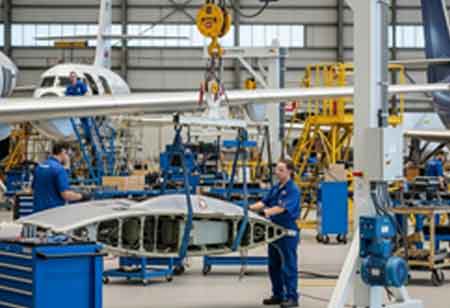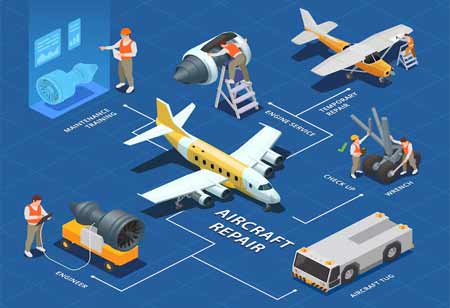Evolving Dynamics of the Supply Chain Management Sector
The supply chain management (SCM) industry has changed significantly due to technological innovation and a growing demand for efficiency. Companies now use advanced technologies like blockchain, the Internet of Things (IoT), and artificial intelligence (AI) to streamline processes and improve decision-making. The need for real-time tracking and predictive analytics has increased the adoption of digital solutions, enhancing accuracy and responsiveness.
Cloud-based systems and integrated platforms are essential for optimizing SCM, providing scalability, and facilitating collaboration. Globalization also impacts the industry, requiring companies to navigate regional regulations and consumer preferences. As a result, SCM has become a complex discipline focused on cost-effectiveness and customer satisfaction, with success defined by technology and global coordination.
Major Hurdles in Supply Chain Management and Practical Approaches
The supply chain sector encounters challenges that can hamper the seamless movement of goods and services, creating additional costs and inefficiencies. One significant hurdle is the unpredictability of disruptions driven by external factors like natural disasters, geopolitical tensions, or global health crises. To mitigate this, companies diversify their supply sources, implement robust contingency planning, and use predictive analytics to foresee and address potential disruptions before they escalate.
Another ongoing challenge in supply chain management is insufficient visibility and data sharing among stakeholders. When partners in the supply chain lack real-time access to critical data, inefficiencies arise in inventory management, order fulfillment, and delivery. To tackle this, SCM companies increasingly adopt cloud-based platforms and IoT sensors that enable all stakeholders to access updated, real-time information. This increased transparency helps optimize inventory levels, reduce waste, and enhance the accuracy of supply chain forecasts, ultimately improving the speed and reliability of product deliveries.
Labor shortages also present a significant challenge, especially in logistics and warehousing roles. The need for skilled workers often exceeds supply, creating bottlenecks and delays in supply chain operations. To address this, companies are incorporating automation and robotics into their processes, taking on tasks such as sorting, packing, and inventory management. These technological innovations decrease the dependence on manual labor and improve operational efficiency, accuracy, and speed. Organizations also invest in employee development and training to ensure the workforce remains skilled and adaptable to the sector’s evolving needs.
Sustainability is another challenge that many supply chain management companies face as pressure grows from consumers and regulators for more environmentally responsible practices. Companies are adopting greener logistics strategies to meet these expectations, such as route optimization to reduce fuel consumption, using electric vehicles for transportation, and embracing sustainable packaging solutions. By including eco-friendly practices in their operations, companies reduce their environmental impact, improve their brand reputation, and attract environmentally conscious consumers.
Innovations and Growth Potential for Stakeholders in Supply Chain Management
Technological advancements offer abundant opportunities for stakeholders within the supply chain industry, driving growth and operational improvements. Incorporating artificial intelligence and machine learning enables companies to forecast the market more accurately and optimize inventory management. By examining large amounts of data, AI models help businesses make more informed decisions, minimize overstocking or understocking, and align production schedules with market demands.
Blockchain technology also presents significant opportunities for enhancing supply chain trust, security, and transparency. By providing a secure, decentralized ledger for tracking the movement of goods, blockchain assures that each stage in the supply chain is recorded immutably, reducing fraud and errors. This level of transparency enables stakeholders to monitor the authenticity of products and ensures that they comply with regulations.
Sustainability initiatives help companies differentiate themselves in a competitive market. With growing consumer demand for sustainable products, businesses focusing on responsible sourcing, carbon reduction, and renewable energy can enhance their brand and attract eco-conscious consumers. Green logistics solutions like electric delivery vehicles and sustainable packaging can lower costs while supporting environmental goals. By prioritizing sustainability, companies positively impact society and improve their long-term profitability and competitiveness.
The rise of e-commerce is another significant opportunity for growth within the supply chain sector. As online shopping expands, supply chain companies must adjust to fulfill the increasing demand for fast, reliable, and efficient delivery services. Technologies such as robotics, drones, and autonomous vehicles transform how goods are stored, picked, packed, and delivered. These innovations speed up fulfillment processes, reduce delivery times, and optimize transportation routes, benefiting stakeholders by improving service levels and reducing costs.









